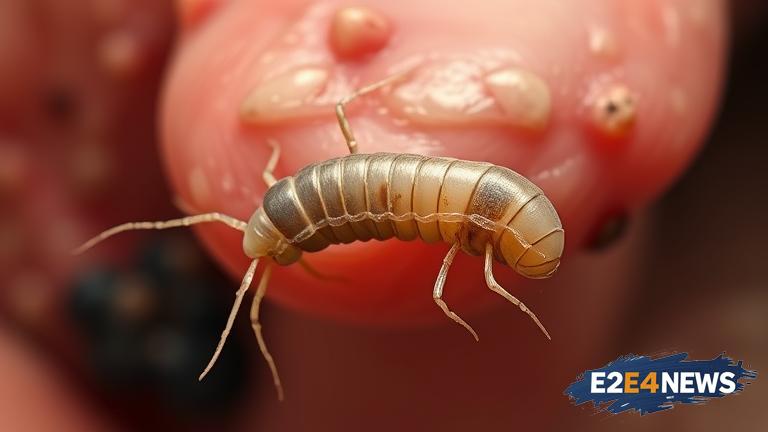According to federal health officials, a traveler has been diagnosed with a flesh-eating maggot infection, a rare and potentially deadly condition caused by a parasitic infestation. The infection, known as myiasis, occurs when the larvae of a certain species of fly infect the skin of a human or animal, feeding on the tissue and causing severe damage. The Centers for Disease Control and Prevention (CDC) has confirmed that this is the first reported human case of flesh-eating maggot infection in the US. The infected individual, who has not been named, recently traveled to a foreign country where the parasite is common. Health officials are working to determine the exact origin of the infection and to identify any potential contacts who may have been exposed. The CDC is warning travelers to take precautions when visiting areas where the parasite is prevalent, including wearing protective clothing and applying insect repellent. Myiasis is typically found in tropical and subtropical regions, and is often associated with poor sanitation and hygiene. The infection can cause severe pain, swelling, and tissue damage, and can lead to serious complications if left untreated. In severe cases, myiasis can lead to amputation or even death. The CDC is urging healthcare providers to be aware of the signs and symptoms of myiasis, which can include painful lesions, swelling, and discharge. Early diagnosis and treatment are critical to preventing serious complications and improving outcomes. The infected individual is currently receiving treatment, and health officials are monitoring the situation closely. The CDC is working with state and local health departments to investigate the case and to prevent further transmission. The agency is also providing guidance to healthcare providers and travelers on how to prevent and treat myiasis. As the summer travel season approaches, health officials are reminding travelers to take necessary precautions to protect themselves from insect-borne illnesses. This includes wearing protective clothing, applying insect repellent, and avoiding areas with high insect activity. Travelers should also be aware of the risks associated with myiasis and take steps to prevent infection, including avoiding contact with contaminated soil or water. The CDC is committed to protecting the public’s health and preventing the spread of infectious diseases. The agency will continue to monitor the situation and provide updates as more information becomes available. In the meantime, travelers are advised to take precautions and to seek medical attention immediately if they experience any symptoms of myiasis. The infection is a reminder of the importance of global health security and the need for continued vigilance against emerging and re-emerging diseases. The CDC is working closely with international partners to track the spread of myiasis and to develop effective prevention and treatment strategies. As the world becomes increasingly interconnected, the risk of infectious diseases spreading across borders is growing. The CDC is committed to protecting the public’s health and preventing the spread of diseases like myiasis. The agency will continue to work tirelessly to monitor and respond to emerging health threats, both at home and abroad.
